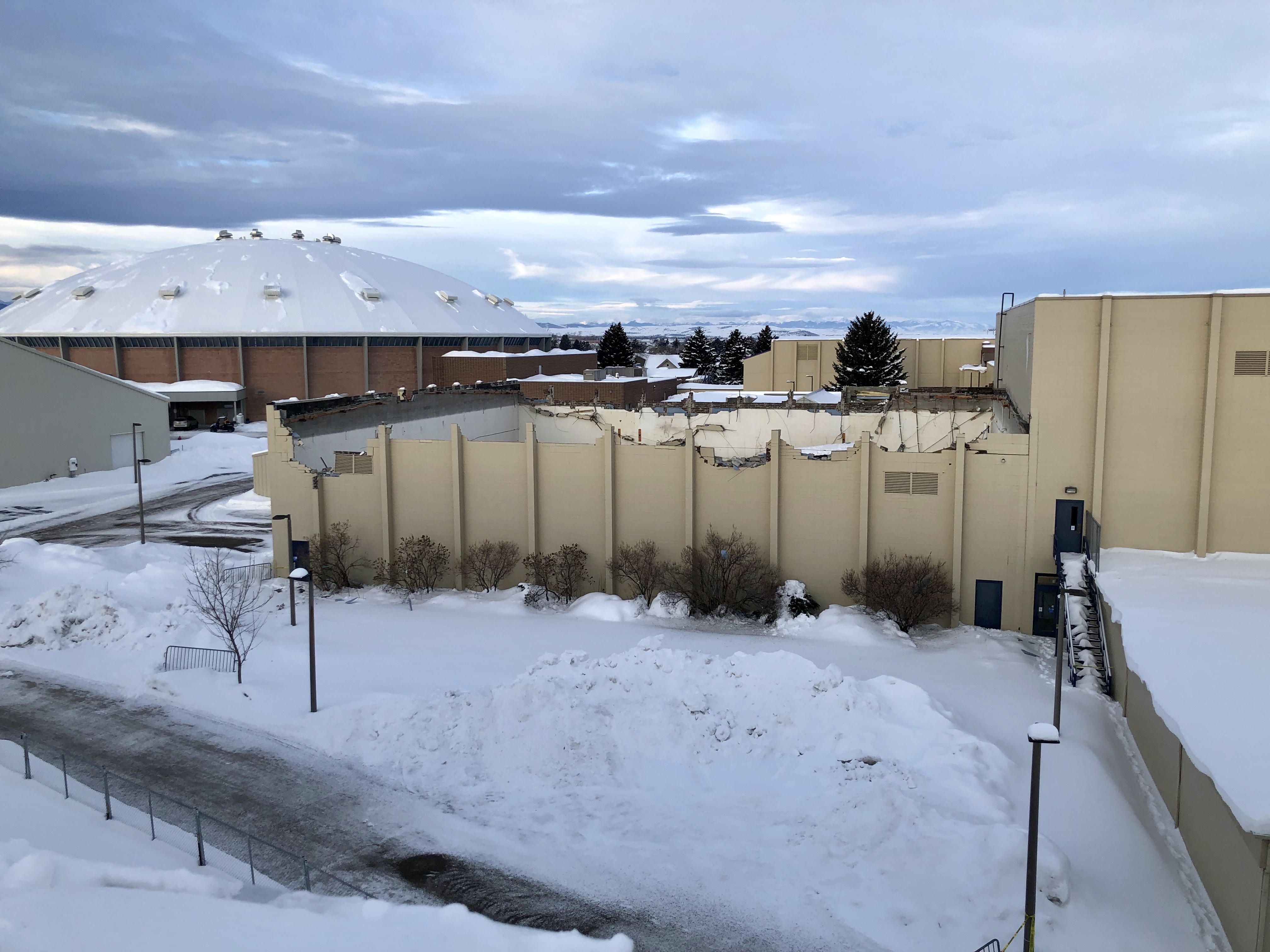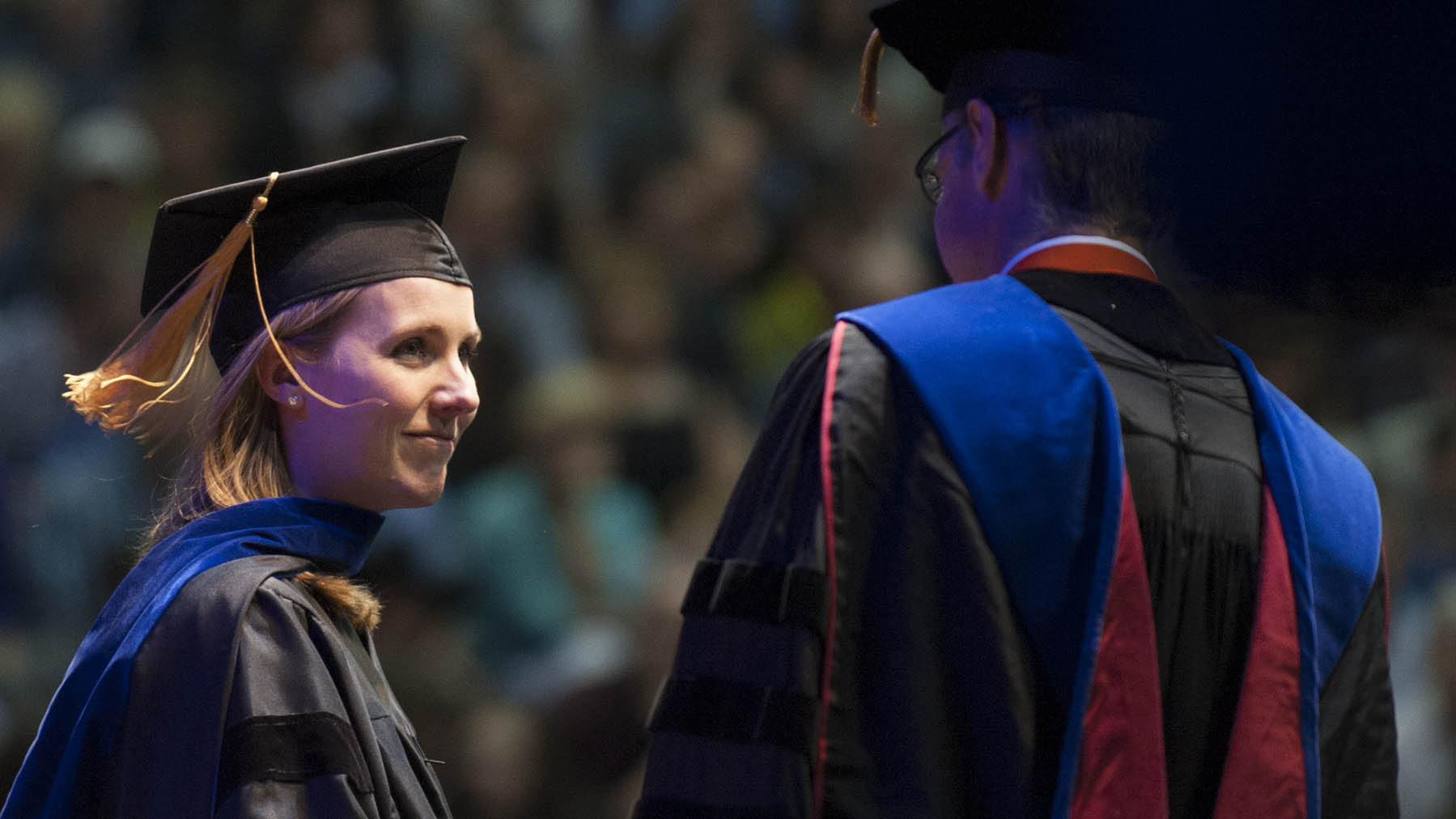My Concerns About Recent Decisions at MSU that Bypass the Faculty
I have noticed many instances in the last few years in which MSU administrators start initiatives and policies that will have a big impact upon faculty and the delivery of our curriculum, but do so with essentially zero faculty involvement.
Allow me to cite a set of examples that have led me to my current state of mind and sensitivity about faculty involvement being dismissed or relegated to a secondary consideration.
My Disclaimer
I am writing my individual opinion as a senior faculty member. I speak for myself.
Although I am hopeful that other faculty will agree with me, or provide meaningful
rebuttal, the information and remarks presented here represent only my own viewpoint.
My views are not necessarily the views of my academic unit or my academic college.
It is my express intent to provide accurate information and interpretation. In the
event that at some point in the future I should receive new information, clarification,
and/or new documentation related to the views given here, I reserve the right to amend
my remarks to include my findings and opinions based upon review of the new information.
RCM -- updated 2025 May 7
Example Areas of Concern
The Bobcat 4x4
The first instance I will mention is the “Bobcat 4x4” summer session plan of 2018. I have a whole separate web blog about what was completely backwards about the initiation of that sadly misguided scheme.
Because of that avoidable mistake by the administration, there were huge efforts put in place by faculty in physics, chemistry, math, and other critical fields, to cram 180 effort-hours of a semester-long course with labs into 16 days. As I and many others predicted, it didn’t work. By summer 2020, the 4x4 had been largely abandoned, with Math, Chemistry, Physics, ECE, and other departments offering ZERO courses in the 4x4 format. I don’t recall the administration saying it was sorry for all the wasted effort in that 4x4 exercise, but it could all have been avoided had there been broad faculty participation in the ORIGINAL decision. Even since that debacle, the administration has not engaged the faculty-at-large in any sort of broad discussion about the summer programs.
Fitness Center Roof Collapses (South Gym and then North Gym)
Another instance was the roof collapses of the gym complex in March, 2019. The campus dodged what would have been a multiple-fatality incident by simple luck: the first roof fell in the middle of the night, rather than a few hours later when fitness classes would have been in session in the south gym.
 After the collapse, a reasonable person might expect that MSU faculty with expertise
in structures and engineering (yes, we are a STEM university, with engineers and architects!)
would have been consulted and asked to prepare a formal forensic investigative report.
Jerry Stephens, for example, was Civil Engineering department head, and is an expert
(now retired) in structural systems and snow loading. He would have been a perfect
person to prepare such a public report on behalf of the faculty. Instead, the administration
has been silent about the cause of the collapse, and whether the rumored reports of
prior symptoms like water leaks, cracking sounds, overloading due to recent roofing
upgrades, etc., could have caused or contributed to the collapse. The administration
has not engaged the faculty-at-large in any sort of discussion about the collapses.
After the collapse, a reasonable person might expect that MSU faculty with expertise
in structures and engineering (yes, we are a STEM university, with engineers and architects!)
would have been consulted and asked to prepare a formal forensic investigative report.
Jerry Stephens, for example, was Civil Engineering department head, and is an expert
(now retired) in structural systems and snow loading. He would have been a perfect
person to prepare such a public report on behalf of the faculty. Instead, the administration
has been silent about the cause of the collapse, and whether the rumored reports of
prior symptoms like water leaks, cracking sounds, overloading due to recent roofing
upgrades, etc., could have caused or contributed to the collapse. The administration
has not engaged the faculty-at-large in any sort of discussion about the collapses.
Elimination of annual review of administrators
For many years, MSU faculty were invited to provide confidential reviews of academic administrators (Vice Presidents, Deans, and Department Heads). The policy in the Faculty Handbook was that immediate faculty supervisors (department heads and associate deans) would be reviewed annually, and other administrators would have performance reviews at least once every three years.
At some point, probably at the time of the decertification of the MSU tenure track faculty union (2013) and interim faculty policies were imposed by the Office of the Commissioner, the faculty review of MSU administrators ceased. While the administration continued to require annual review of faculty, student evaluation surveys for every class taught, etc., the administrators themselves have arranged not to seek or receive any systematic mandatory performance feedback from the faculty.
Nearly every best practice document about organizational policies describes the importance of so-called "360 reviews" in which administrators receive formal feedback from those they supervise, as well as from their supervisors. It is my understanding that the administration has dragged their feet about resuming these reviews, although Faculty Senate is reportedly working on enforcing a new policy in this regard.
General Education "Core" Curriculum
There have been several attempts in the last few years to develop a new Core curriculum (general education) for MSU that would aspire to be a signature feature of an MSU education, and inspire students and faculty. In the 2015 time frame, a Core Working Group came up with a pretty dramatic proposal that would have transformed the Core curriculum. My understanding is that the administration at that time was not interested in engaging with the faculty about general education matters, and shelved the whole discussion. Then a few years later, in the 2017-2018 time frame, the administration came up with a “Core revitalization proposal” that was really just a rebranding, with a freeze on any new Core courses or changes. Innovation was discouraged, and most faculty saw nothing appealing about just changing the curtains and carpeting on a website, and didn’t bother to get engaged. Faculty can usually tell when there is an administration proposal that doesn’t seek any intellectual contributions from the faculty-at-large. That was a BIG opportunity lost.

Academic Calendar Changes
More recently, the administration has made alterations to the academic calendar in a unilateral—and what appears to be arbitrary—manner, with essentially no faculty consultation. When I ask the Faculty Senate leadership about this, they say that they are “told” what is the calendar, not consulted. Some of the decisions were attributed to the pandemic, but other decisions, like eliminating finals week for the last few semesters, starting the semester early, moving commencement from Saturday to Friday, introducing and then abruptly discontinuing Snowmester classes, and so forth, should have had a faculty consultation committee, but the administration has not engaged the faculty-at-large in any calendar discussions.
Pandemic Response

⇒ In 2020 when the administration decided to create a “reconstitution committee” with at least seven working groups to act as task forces surrounding pandemic policies and procedures, virtually no faculty were asked to participate. I believe the Faculty Senate chair and vice-chair were said to be on all of the working groups, but I am not sure how effective they could be, trying to juggle seven different committees. But I know of at least one faculty member (me) who volunteered to serve on the “student success” reconstitution committee, but was not invited to do so, and no other faculty were on that committee either. How our university can have a committee titled “student success” with zero faculty involvement is, well, dumbfounding. The administration should have engaged with the faculty-at-large to participate in these matters.
⇒ In the fall of 2020, the administration came up with something like $500k to use for improving classroom facilities for on-line hybrid instruction. But for some reason, the administration deliberately chose not to engage in any faculty discussion about the highest-priority needs for such improvement, nor was there any faculty involvement in choosing which rooms and which capabilities would be of the most utility for instruction. MSU has a Classroom Committee, but the administration didn’t even notify that committee until after all the money was spent! There was no attempt to engage the faculty-at-large about this amazing opportunity to spend more than half a million dollars for instructional equipment.
⇒ During the pandemic, a group of prominent MSU faculty received funding ($776,000) to develop a rapid Covid testing methodology. The faculty team did a great job, and came up with a test protocol in record time, expecting that MSU would do its best to utilize the new technology for surveillance testing on campus. However, the MSU administration had other plans, and apparently denied the faculty request to employ testing on campus. So much for the $776k that was spent, and so much for the faculty-at-large trying to provide some sorely needed leadership.
⇒ I can also add several other pandemic-related examples of the administration making pronouncements without faculty consultation about social distancing and mask policy, the “don’t ask, don’t tell” vaccination policy, non-existent communication about campus quarantine numbers, etc.
In December, 2021, without any prior discussion with faculty, the administration unilaterally decided to make face coverings optional in the fitness center. This decision was not based upon any change in CDC guidance or our understanding of virus transmission, but because of pressure from students who did not like the inconvenience of wearing masks. Whether or not one agrees with the decision, the fact that faculty representatives were not consulted before the decision was announced is yet another example of disrespect for faculty shared governance principles.

Comprehensive Sustainability Plan
The MSU Strategic Plan item 3.3.6 states: “Montana State University will develop a comprehensive sustainability plan by 2020 with measurement and annual progress reports to campus.” That seems pretty clear: MSU committed to having a comprehensive plan by 2020, and having annual reports. However, in the fall of 2020 the administration told the sustainability advisory council to stop work on the sustainability plan because of concerns that it would raise the ire of certain partisan factions during the biennial session of the Montana Legislature. Now in 2021, we find that university staff have been told to lie and say that the delay was “due to Covid,” not due to an administrative directive to cease work. If the administration wants to be taken seriously, the administration should not be compelling staff to blame something on Covid that was actually a deliberate delay out of concern over political appearances. Everyone else on campus still taught all their classes, wrote their manuscripts, and we had a record year for G&C activity, so why the administration is telling staff to say that the delay should be blamed on Covid is just, well, dishonest.
What’s more, it is my understanding that the administration also directed that the Diversity and Inclusion team keep their heads down during the legislative session and not issue their report and survey results in 2020, also out of partisan concerns during the legislative session. It seems that D&I staff is also being told to say that delayed reports are to be blamed on the pandemic, not the direction of our administration.
Whether one agrees or disagrees with the administration's decision in the summer of 2020 to prevent public disclosure of the university's sustainability and diversity & inclusion plans, the fact remains that it was a deliberate choice by the administration, and the choice did not involve discussion among the faculty-at-large.
Also regarding Strategic Plan item 3.3.6, the university administration has now decided that it is not desirable to have specific plans in writing where the public can see them, even with the legislature not in session. So although the MSU Strategic Plan clearly says “will develop a comprehensive sustainability plan by 2020,” the administration--on its own--decided that a “plan” is not advisable politically. Perhaps for the same reasons that the administration directed that the sustainability plan be delayed last fall, the administration now does not want public-facing details about what needs to be done on sustainability. Hence, the abrupt emergence of a “sustainability framework” with none of the details and specifics that would rise to the level of what any reasonable person would consider a “comprehensive plan.”
And worse, in my opinion, is that the administration has decided to squelch dissenting faculty voices by demoting the size and scope of what was the Campus Sustainability Advisory Council (established in 2008), from being “comprised of representatives from a broad range of campus constituents” to being a committee of something like seven or fewer individuals. Titles matter at MSU: a “council” participates in university governance, while a “committee” is simply an advisory function. The faculty voice is being reduced, and apparently Faculty Senate doesn’t mind, or has not bothered to have a debate about the administration unilaterally changing a “council” into a “committee.”
Neglecting University Records Retention Policies
In the years before electronic records became de rigueur, MSU had to keep certain information in paper files for future reference. Some records, like equipment inventory lists, class rosters, travel receipts, etc., can be eliminated after a few years, but some records are required to be kept permanently. Nowadays, paper records are much less common, and so the university's electronic repositories, such as the main website, comprise many of the record-keeping functions.
Nonetheless, it has become known that the MSU administration is allowing information on the university's website to disappear without consideration of the Montana University System General Record Retention Schedule.
For example, from the Retention Policy, Item 39 “Strategic and Institutional Plans” (Records of the development of short-term or long-term plans for the institution), the disposition is listed as “Permanent.” Despite this policy, there are a variety of documents and plans that disappeared recently from the MSU website. Among the missing files are reports and recommendations by faculty teams that were prepared for the "UPdate MSU" process in 2015-2016. Those faculty reports resulted in short-term and long-term plans for the institution, including changes to campus academic advising, handling scholarships, eliminating paper forms for travel and purchasing, and so forth. These types of records need to be identified and retained in an accessible form. It will be interesting to see if the administration takes action to retain these documents now that they have been made aware.
Lack of Faculty Participation and Acknowledgement at Prominent University Events
On October 16, 2021, American Indian Hall had its grand opening ceremony. While the student president of ASMSU spoke, no representative spoke on behalf of the academic faculty of the university. Similarly, on November 12, 2021, the Grand Opening of the newly-renovated Romney Hall was held, and again, the ASMSU student president gave some remarks, but no one spoke specifically on behalf of the academic faculty. I think it would be very appropriate to have a designated faculty person, such as the chair of Faculty Senate, attend these prominent events and simply be invited/allowed to say a few sentences of honor and esteem on behalf of the faculty--the people who will be teaching in these new facilities!
At the regular Provost's Lectures during the academic year, prominent MSU faculty are invited to speak about their scholarly work and their career path. It is an event that really celebrates the academic and scholarly life of the campus as embodied by the permanent faculty of the university. However, rather than making the event a celebration of the faculty role, the Provost almost always uses his opening remarks to call out the various university administrators that are in the audience. Similarly, at the annual Celebration of Tenure dinner, no member of the regular academic faculty speaks, just administrators.
At many of these events, various constituencies are invited to stand and be recognized, such as students, alumni, administrators, and visiting dignitaries. Even at the commencement ceremonies, faculty are simply told to "stand and be recognized," but no words are uttered by a faculty representative. The student body president and a representative of the Alumni Association are allowed to give prepared remarks, but not one faculty member speaks.
Commencement is certainly a good place for faculty to stand and wave, but that should be considered the minimum expectation at celebratory events on campus, and time should be allocated for at least a few brief remarks of welcome and congratulations by a faculty representative.

Bypassing Faculty Input on Graduate Dean Appointment
It was announced on December 16, 2024, right at the end of the academic semester, that the Dean of the Graduate School, Craig Ogilvie, was being removed from the position that he had held since August 1, 2019. Academic Deans and other administrators generally serve at the pleasure of their bosses, so the university Provost had the prerogative to remove the Graduate Dean without any consultation, and as is required by employment law, the Provost does not give a public statement of the reason for the decision. However, when filling an adminstrator position with either an interim or permanent replacement, the university administration is expected to consult with the leadership of MSU Faculty Senate regarding the search and/or selection process.
From the Faculty Senate bylaws, Article VI, section 5:
Section 5. Faculty Senate Participation on University-Wide Search Committees.
A. Participation in Searches for Permanent Administrative Positions. The President shall request the Faculty Senate Chair to nominate faculty for membership
on search committees to fill University administrative vacancies. The Faculty Senate
Chair shall forward the President's request to the Nominating Committee Chair who
shall advertise the openings at Faculty Senate meetings and through electronic means.
The Nominating Committee Chair shall forward nominees to Faculty Senate. Faculty
Senate will forward their selections to the President, who shall select the Faculty
Senate representation from these nominees.
B. Participation in Filling Acting and Interim Administrative Positions. Faculty Senate and/or Steering Committee shall participate in the screening and
selection process for all acting and interim administrative positions. The President
of Montana State University shall confer with the Faculty Senate Chair to establish
the means and timelines for Faculty Senate and/or Steering Committee participation.
Despite this clear expectation in Section 5b ("The President of Montana State University shall confer..."), not one word was exchanged between the president and provost and the Faculty Senate leadership when Deborah Haynes was announced unilaterally by the administration as the interim Graduate Dean.
Moreover, the 16 December 2024 press release announcing Ogilvie's ouster and Debby Haynes installation as interim Dean stated "Details of a national search for the permanent dean will be announced at a later date."Despite the clear expectation of a national search, an announcement came abruptly on 10 April 2025 via email from the Provost that Deborah Haynes was being appointed to the permanent role of Dean of the Grad School. As with the interim appointment, no consultation of any kind took place with the leadership of Faculty Senate, nor with the chair or members of the University Graduate Council. The administration deliberately bypassed input from the faculty.
In subsequent conversations, the administration said that concerns about the complex situation in graduate education, for example, recent federal actions to rescind student visas of grad students and curtail federal funding that pays graduate tuition and stipends, made them feel that a permanent grad dean was needed. They also wanted to avoid having interim positions so that the new university president being onboard in a few months could have a full team. While this rationale for an internal appointment rather than a national search might be understandable, it gives no reason whatsoever that consultation with Faculty Senate leadership could not have taken place. Even a simple phone call would have taken no more than a few minutes.
